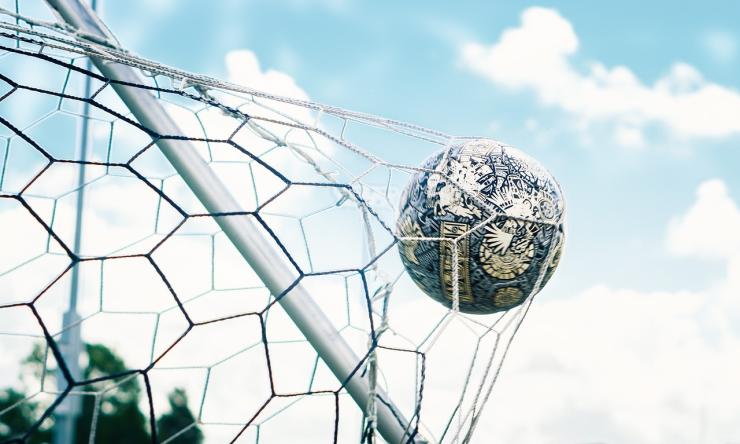Score goals safely with these soccer injury prevention tips
While the U.S. women’s national soccer team competes in the FIFA Women’s World Cup in Australia and New Zealand, many amateur players may be inspired to kick up the soccer ball at home. A Baylor College of Medicine athletic trainer offers tips on how to play safely and prevent injuries.
“Ankle and knee sprains, muscle strains, contusions and abrasions are the most common injuries for soccer players,” said Leah Palmer, senior athletic trainer manager in the Joseph Barnhart Department of Orthopedic Surgery. “Female players have a higher risk for more serious injuries such as ACL tears.”
During the hot summer, heat-related injuries are also common, so Palmer stresses the importance of hydration to prevent injury.
“Don’t just drink water right before you play,” Palmer said. “Get in the habit of hydrating throughout the day, while you’re playing and after you play. Know your limits. If you are feeling tired and don’t feel that you can be at 100%, then take a break, have some water and maybe a small snack, then get back at it.”
Before you start playing, Palmer recommends a short warmup, such as a 5-minute jog, followed by stretching. Don’t forget to spend time stretching after you play. It’s also important to make sure you have the right equipment and a safe playing surface to avoid injuries on the soccer field. Be sure to wear properly fitted soccer cleats and use shin guards to prevent contusions and abrasions on your legs.
“Check the playing surface for holes, rocks, trash or other objects. Try to remove those obstacles or make sure everyone is aware of them,” Palmer said. “As an athletic trainer, this is one of the first things we check to help prevent injuries.”
If you are injured while playing soccer, Palmer advises rest, compression and elevation. Icing the injured area for 20 minutes to help with pain may also be helpful, as are over-the-counter pain medications such as ibuprofen or acetaminophen. If you cannot bear weight on the injured body part or if you have lasting pain or swelling that doesn’t go away after a couple of days,
Palmer recommends seeing a doctor. Knee and ankle sprains may require a brace, physical therapy, a home exercise program or nonsteroidal anti-inflammatory medication. Serious injuries may require an MRI to get an in-depth look at the injured area.
Learn more about Baylor Medicine Sports Medicine.










